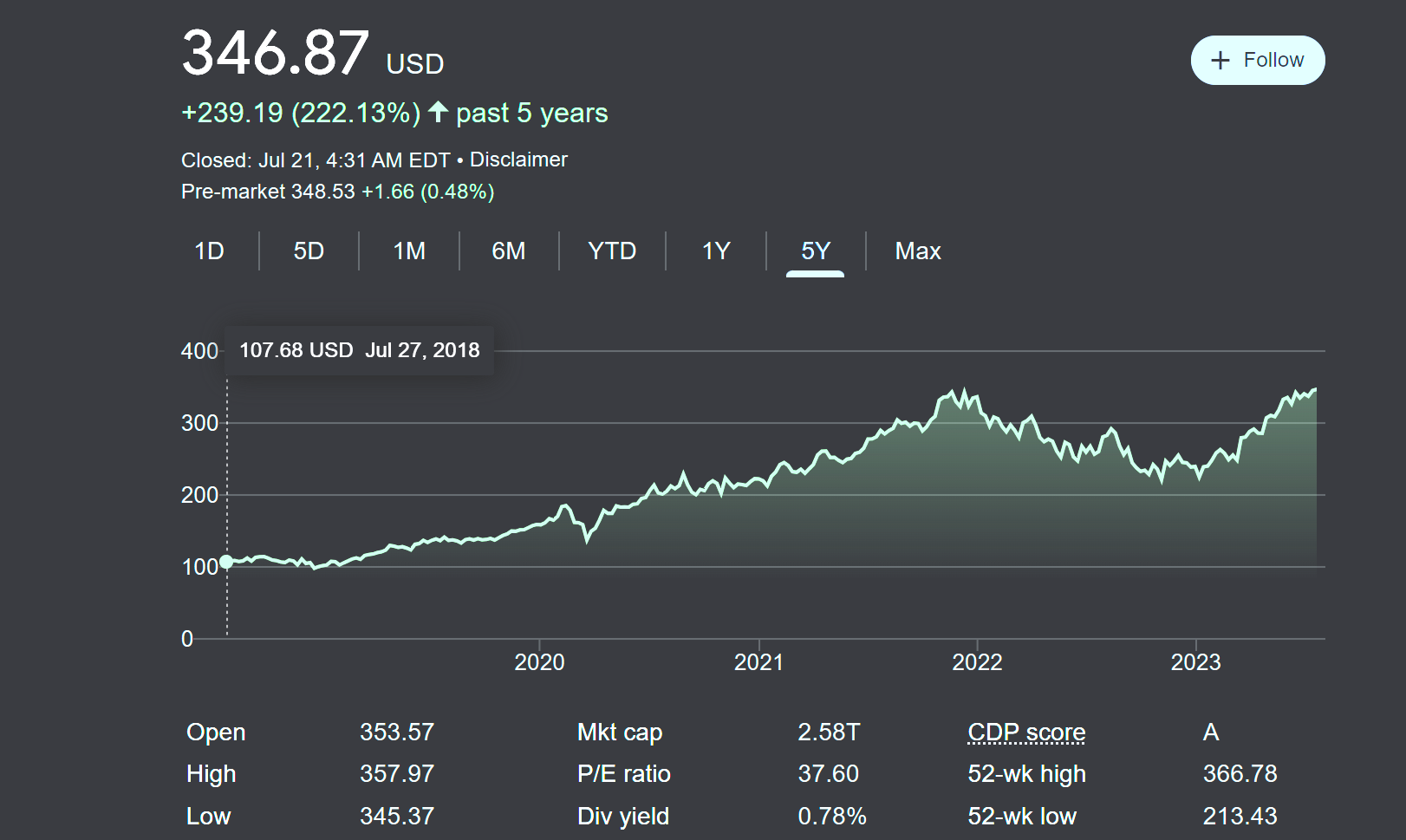In a nutshell: If you're the CEO of a company whose share price has increased by almost 1,000% since the day you took over, then expect to be rewarded for it. In the case of Microsoft boss Satya Nadella, his total compensation now comes in at over $1 billion, and he owes a lot of thanks to AI.
Nadella has steered Microsoft from a company that many feared was past its best in 2014 to the second-largest firm in the world with a market cap of $2.6 trillion. Its stock has gone from $36.35 on the first day Nadella took over - February 4, 2014 – to an all-time high of $364.02 this week, an increase of over 900%.
Bloomberg writes that Microsoft's $13 billion investment in OpenAI has helped push Redmond's stock up 50% this year, and Nadella is reaping the benefits. His compensation package from Microsoft, which includes equity grants, salary, bonuses and dividends, has reportedly passed the $1 billion mark. However, Microsoft spokesperson Frank Shaw said that Nadella "does not have net worth of a billion dollars or more."
Back in 2020, Apple CEO Tim Cook joined the billionaires' club at a time when the company was approaching a $2 trillion valuation. As with Nadella, the increasing value of the CEOs' awards is linked to their companies' stock returns.
Microsoft's share price received another boost on Tuesday when it announced a new $30 per month optional extra to use its AI tools, called Microsoft 365 Copilot, with Office software – plans currently cost between $12.50 to $57 per month. The move is expected to increase Microsoft's revenue by an extra $14 billion. Combined with the OpenAI investment, Morgan Stanley believes Microsoft is on the way to a $3 trillion valuation.
CEOs aren't usually associated with being nice, but Nadella is said to be well-liked. "He is also among the few tech CEOs who are not reviled by politicians and regulators," said Sam Garg, an associate professor at ESSEC Business School in Singapore.
But Nadella isn't afraid to make tough decisions. Like many tech giants this year, Redmond has laid off a large number of staff, more than 10,000, due to overhiring during the pandemic and a shaky economic climate.

